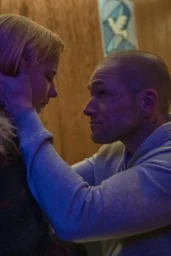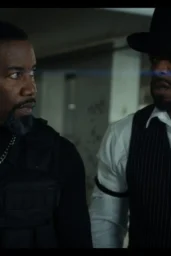When discussing 2024's most polarizing TV shows, Lucasfilm's now-canceled “The Acolyte” stands as a lightning rod for debate. Set during the High Republic era of the “Star Wars” franchise, the series promised to delve into a previously unexplored timeline, blending political intrigue, ancient Jedi philosophies, and dark-side mysticism. However, “The Acolyte” became mired in controversies over its storytelling, casting choices, and production values.
The show's ending, a mini-cliffhanger featuring Manny Jacinto's Qimir and Amandla Stenberg's Osha venturing into uncharted territories, teased an encounter with the legendary Darth Plagueis. This tantalizing glimpse suggested more was to come—a notion recently confirmed by Jacinto at FanExpo San Francisco, where he disclosed that showrunner Leslye Headland envisioned a three-season arc for the series.
Jacinto shared, “I remember Leslye's dream was for us to do three seasons, not just this one. There's something about having a finite ending to things that makes it so much more special. But you know, three seasons and a movie would have been incredible, and I know we had so much more to explore with that second season.”
What Could Have Been: A Deeper Dive
The vision for “The Acolyte” extended far beyond its initial eight episodes, which reportedly cost Disney over $230 million to produce. According to Jacinto, the subsequent seasons would have delved into the Qimir-Plagueis connection, Osha's burgeoning powers, and the broader High Republic's unraveling mysteries. Unfortunately, Disney Entertainment co-chairman Alan Bergman confirmed that the show's high production costs, coupled with modest audience engagement, made continuation financially untenable.
It's worth reflecting on the sheer ambition of “The Acolyte.” Unlike other “Star Wars” properties, it took risks by stepping away from familiar characters and settings. The High Republic's rich tapestry of politics, philosophy, and burgeoning Jedi lore offered fertile ground for exploration. Yet, the execution often faltered, with inconsistent pacing and an uneven tonal balance alienating portions of the fanbase.
The possibility of three seasons suggests that Headland had a roadmap to address these shortcomings and weave a more cohesive narrative. Imagine the layers of complexity that could have emerged—a deeper understanding of the Sith's rise, intricate character arcs, and philosophical debates akin to “The Empire Strikes Back” or “The Last Jedi.”
Personal Impressions: A Missed Opportunity for “Star Wars”
As a lifelong fan of “Star Wars,” the cancellation of “The Acolyte” feels like a loss of potential rather than a creative misstep. The series dared to push boundaries, introducing a darker, more cerebral side to the galaxy far, far away. Manny Jacinto's charismatic portrayal of Qimir and Amandla Stenberg's nuanced take on Osha hinted at characters capable of anchoring a layered, morally complex saga.
However, the series' inability to balance its ambition with accessible storytelling proved its undoing. While it resonated with those seeking fresh perspectives within the “Star Wars” universe, it struggled to captivate a broader audience. Perhaps this was a case of aiming too high without sufficiently grounding the narrative in the elements that make “Star Wars” universally beloved: compelling characters, emotional stakes, and a sense of wonder.
If “The Acolyte” had continued, could it have redefined the “Star Wars” universe? What aspects of the series would you have wanted to see explored in future seasons?












